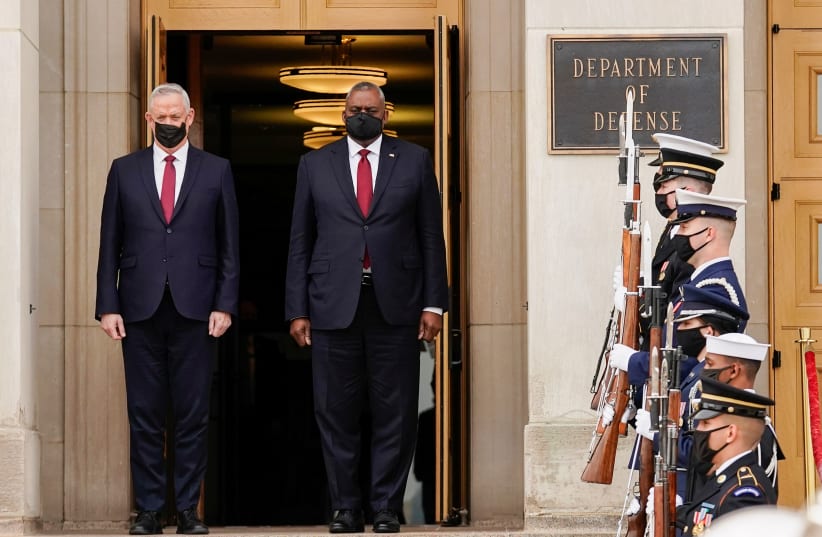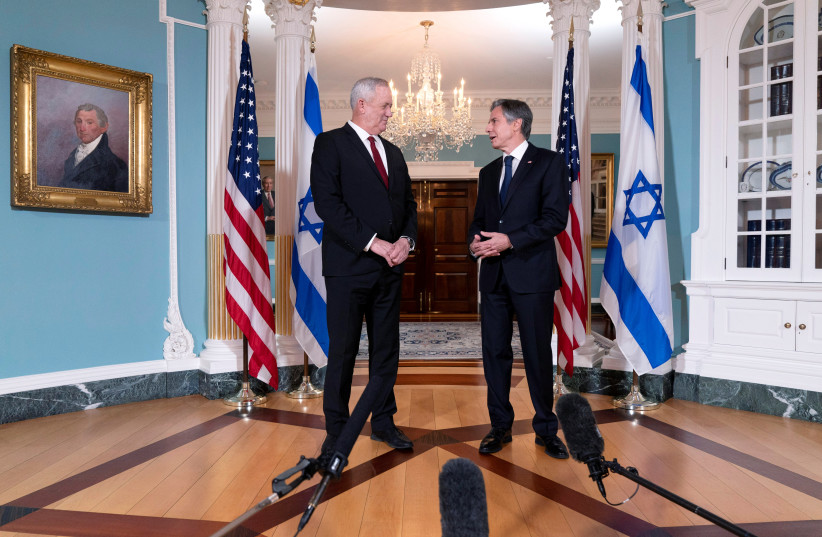Israeli officials consulted with the US on two separate occasions before launching covert strikes against Iranian facilities, The New York Times revealed on Saturday morning.
The strikes took place in June against an Iranian factory used for building nuclear centrifuges, and in September against a missile base, according to anonymous officials briefed on the actions.
But despite this, the relations between Israel and the US are becoming increasingly strained over the Iran issue.
US President Joe Biden recently asked National Security Advisor Jake Sullivan to review the Pentagon's revised plan to take military action against Iran if necessary in the event of a diplomatic collapse.
The reason for his doing so was two-fold, NYT alleged based on conversations with anonymous sources.
Firstly, the move was intended to signal to Tehran that the United States was running out of patience for Iranian delays in the Vienna nuclear negotiation.
Secondly, however, it was intended to appease Israeli officials who feel that the US is not doing enough to stop Iran and that as a result, Iran are able to continuously increase their nuclear advances.
Israeli Defense Minister Benny Gantz was recently dispatched to the US along with new Mossad head David Barnea in order to share new intelligence with Washington officials after a tense phone call was had by Israeli Prime Minister Naftali Bennett and US Secretary of State Antony Blinken.
According to reports shared with NYT by officials requesting to remain anonymous, the two sides left the phone call dissatisfied and frustrated due to their very different opinions and strategies when dealing with Iran, and the value of a renewed agreement, should one be reached.
During the call, NYT alleged, Bennett said that Iran was attempting to blackmail the US by increasing the enrichment percentage. Furthermore, he said that fears of a nuclear-armed Iran should not lead to giving in to their demands or signing a reckless agreement.
However, other US officials believe his concerns are misplaced, saying that Israel's complaints that the US was supposedly considering offering an interim deal that would roll back some sanctions in return for a freeze on some of its nuclear activity are unfounded.
"An offer is not actively being considered, at least for now, because of Iran's unwillingness to engage," the sources alleged to the newspaper.
Israeli officials say that they have not been reassured, however, and are increasingly concerned that the US will eventually reach a deal and then work to block Israel from carrying out covert sabotage attacks.
The two countries disagree not only on the methods necessary to keep Iran in check but on the urgency of employing said methods. America believes that Iran has not moved to develop a bomb since it suspended its nuclear military program in 2003. Israel, however, believes that the efforts have continued more covertly since then.
In an attempt to iron out differences between the two countries, Israeli Defense Minister Benny Gantz and Barnea arrived in Washington earlier this week to share new intelligence with US officials and to find common ground.
In the meeting, Israeli officials tried to persuade Washington to tighten sanctions on Iran rather than work towards a nuclear agreement.
During the meeting, Gantz warned the Americans that Iran’s advances are bringing it to the nuclear threshold, and the only way to attain a better deal is to put as much pressure as possible on the regime.
Following the meeting, the Israeli and American officials discussed potential military exercises which could be carried out by the two countries to prepare for a worst-case scenario. Details of the possible drills have not been publicized, with the US declining to share details, according to Reuters.
Following the announcement of these discussions, Iran responded, warning of a "heavy price for aggressors," Reuters reported via Iranian media on Saturday afternoon.
Ahead of his trip, Gantz spoke to Israeli media sources, saying that Israel must "do everything it can" in order to prevent Iran from reaching nuclear capability.
"We need to prepare ourselves for any possibility in order to defend the State of Israel. We are developing capabilities and we need to continue to strengthen them,” Gantz said.

